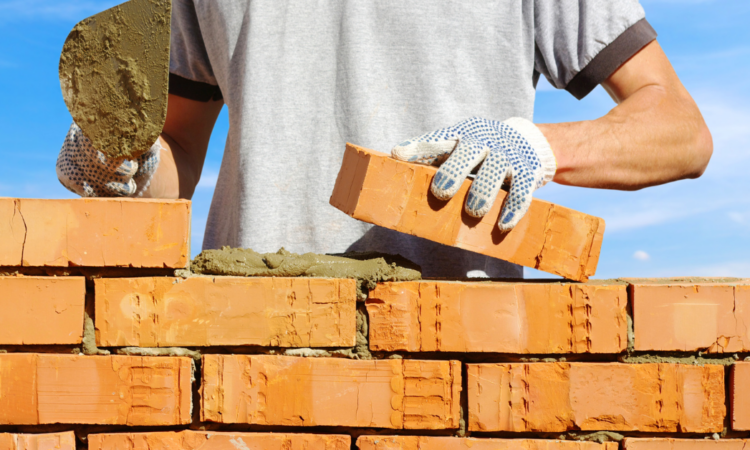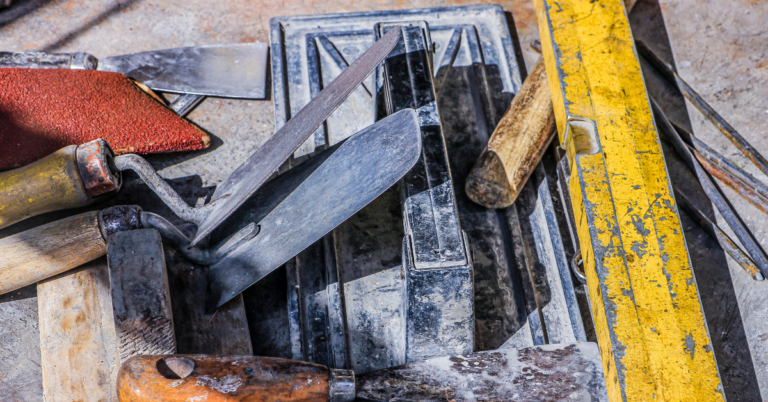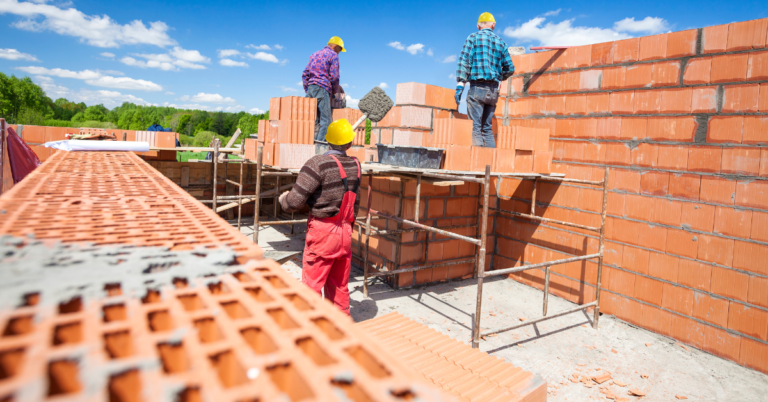What is bricklaying and how much do bricklayers make?
Bricklaying is a profession undertaken by bricklayers working in the construction industry. In simple terms bricklaying is the activity of constructing walls and buildings with bricks and mortar. It is closely related to stone masonry.
The stage of a bricklayer’s career will determine how much money they make. Becoming a fully-qualified bricklayer takes time, focus and effort. In this blog, we will use industry stats from to dig into the ever-popular question: how much do bricklayers make?

How much does bricklaying pay?
A bricklayers rate of pay depends on many factors.

Bricklayer salary – UK
At SLBC Ltd, our subcontractors are on price work and are self-employed. Other bricklayers can be ‘books in’ with a company. ‘Books in’ just means you are employed by the company and categorised as a PAYE employee. When you are employed by a company you either receive an hourly rate or you are paid based on how many bricks you lay.
When you are self-employed as a bricklayer, your wages vary based on how fast and how well you can lay brick. This is often referred to as ‘price work’.
Ultimately, there are endless earning opportunities with a career in bricklaying – the sky is the limit. Whether you work independently, or for a subcontractor, how much bricklayers make depends on location and level of experience.
What is the average hourly rate for a bricklayer?
According to Talent.com, in 2024, the average salary of a bricklayer in the UK is £39,000. This averages out at an hourly rate of around £20.00 per hour.
- Newly-qualified bricklayers in entry-level positions make on average around £32,600 per annum
- More experienced bricklayers can earn upwards of £50,000 per annum
The average hourly rate will vary depending on your location and level of experience. The below table is an example of hourly rates for bricklayers depending on level of experience.
Level of experience | Average hourly pay (per hour) | Average annual salary (after tax, approx)* |
| Newly qualified | £18.19 | £30,269.16 |
| Employed | £19.28 | £32,081.92 |
| Sole trader (self-employed) | £38.00 | £55,424.80 |
| Business Owner (Ltd – self-employed) | £38.53 | £56,085.24 |
Take home pay
It’s also important to note that your take home pay, as a self-employed bricklayer, will be less. This is because you have to account for business expenses. There are many different things you will need to cover the costs of. These include:
- Qualifications (e.g., CSCS Card Test, NVQ or SVQs)
- Work clothes and shoes
- Tools and equipment
- A vehicle, insurance, fuel, road tax and maintenance
Apprentice bricklayer wages – UK
The company which employs you during your bricklaying apprenticeship will ultimately decide your rate of pay. This has to be, at the very least, in line with the legal minimum wage for apprentices. According to Gov.uk, the national minimum wage for apprentices in Scotland is £6.40 (as of April 2024). Based on this:
- The national average minimum wage is around £10,700 per annum for an apprentice bricklayer
As of 1 April 2024, the Government made it law that workers aged 21 and over will be entitled to the National Living Wage. Check the Gov.uk website for more information on apprentice wages.
At SLBC Ltd, we understand that apprentice wages are very low. That is why we pay our apprentices above the national minimum wage. If an apprenticeship in bricklaying interests you, you can read our other blog on a day in the life of an apprentice bricklayer.

Bricklayer salary FAQs
How much do bricklayers get paid per brick?
The average pay for a bricklayer to lay 1,000 bricks would be around £1,220. Ultimately, what bricklayers get paid per brick will vary depending on their location and level of experience. If you are a bricklayer and are employed by a company, it is likely you will receive an hourly rate, rather than being paid per brick.
How many bricks can a bricklayer lay in a day?
A confident, experienced bricklayer could lay up to 500 bricks on a clear-sky day. However, there are many external factors encountered by a bricklayer on the day-to-day which can quickly reduce this number by hundreds. For example:
- Bad weather i.e., rain or frost
- Spoiled materials
- A difficult build
- Delays on site
Where do bricklayers get paid the most?
All bricklayers will receive varying rates of pay depending on which part of the UK they work in. It’s said that bricklayers in the South of England will earn a higher average salary than those in Scotland. The type of job, whether the project is domestic or commercial, will also dictate rate of pay.
Content disclaimer: This content has been generated and intended for general information purposes only. This content should not be taken in place of formal advice.
All image credit to Canva.







